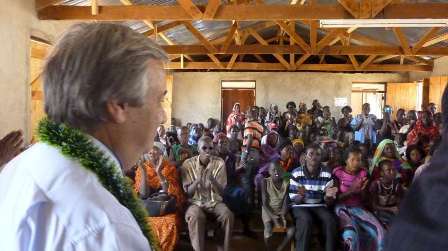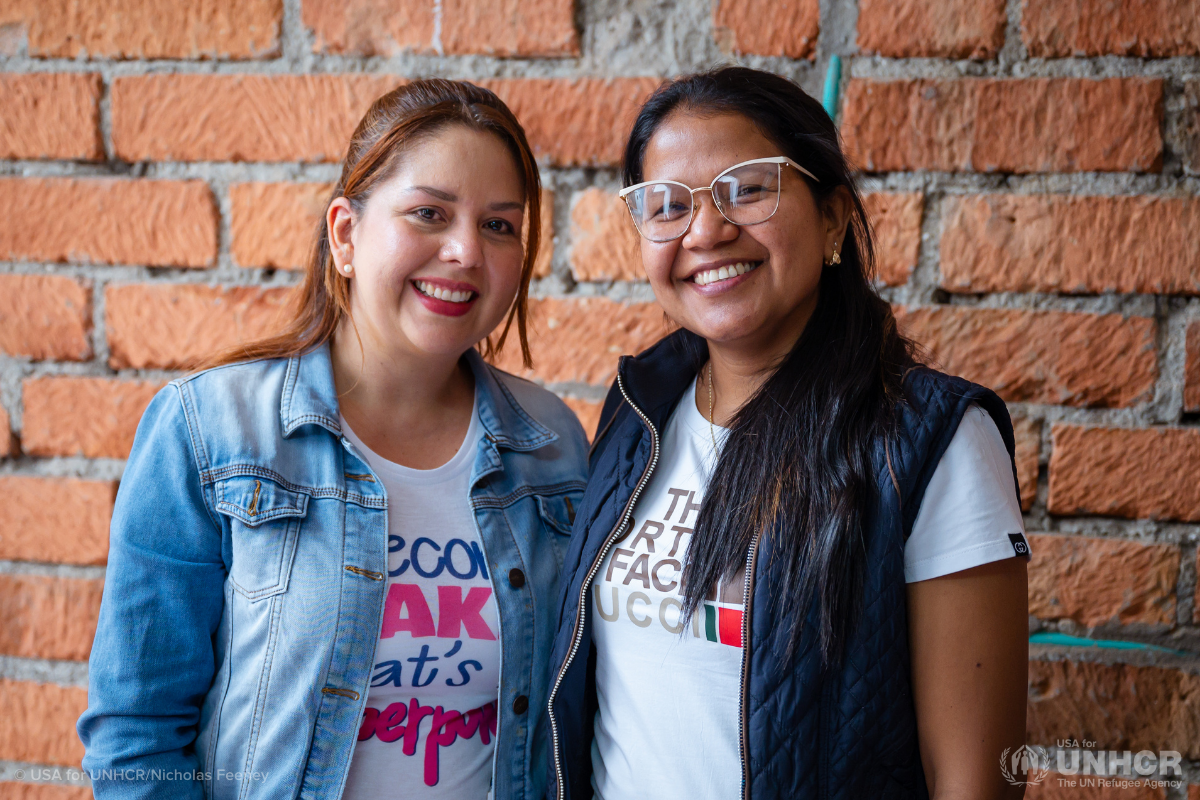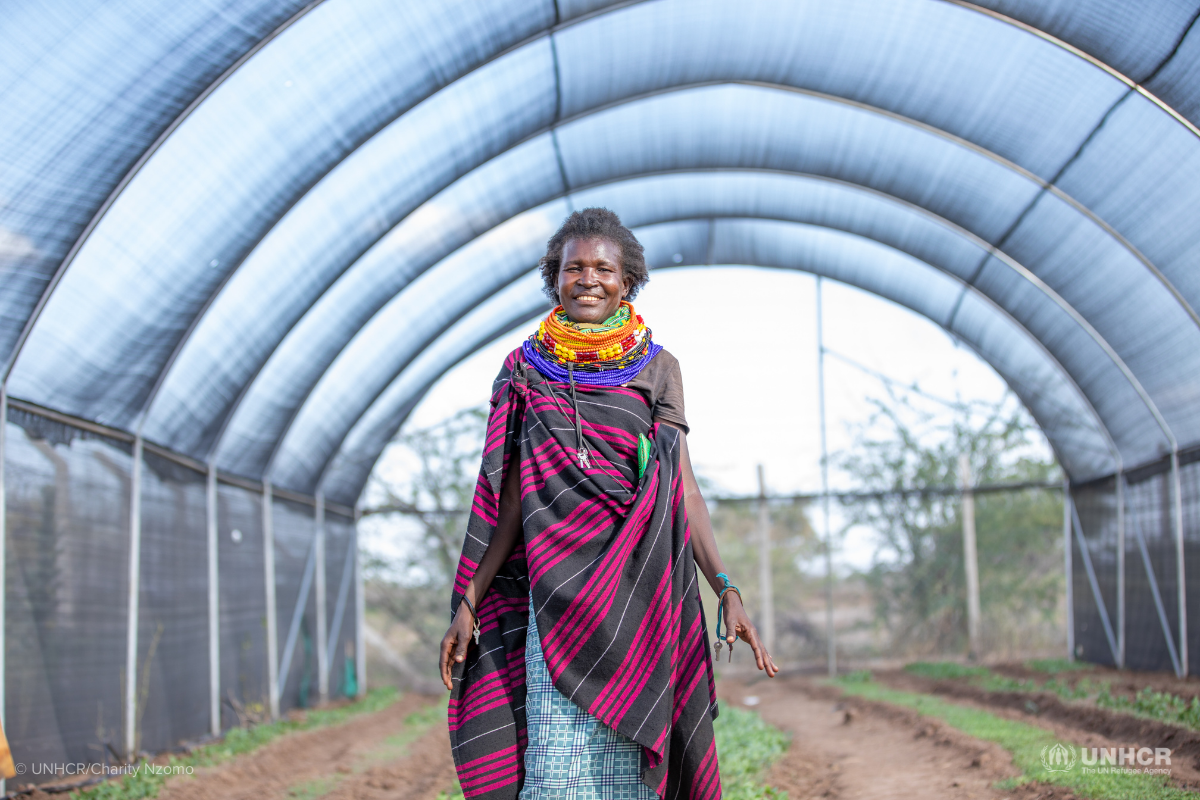UNHCR chief appeals for massive humanitarian support for South Sudan
UN High Commissioner for Refugees António Guterres is calling on the international community to provide "massive" humanitarian support for South Sudan, which faces major forced displacement crises.
Without such help, Guterres warned after meeting refugees in Doro camp, "it will not be possible to respond…We could face a humanitarian disaster of enormous proportions." UN High Commissioner for Refugees António Guterres visits refugees in South Sudan and says international assistance is "absolutely crucial."
Doro hosts at least 28,000 people who have fled to South Sudan to escape fighting in Sudan's Blue Nile state between the Sudan armed forces and the Sudan People's Liberation Movement-North.
Six months after South Sudan celebrated its status as a newly independent country, the disputed border area with Sudan has become a flashpoint and a gateway for tens of thousands of refugees.
Guterres noted that South Sudan was facing "massive suffering and a multiplicity of crises — more than 80,000 people have fled Blue Nile and South Kordofan States of Sudan. There is fierce inter-communal violence and displacement in its own state of Jonglei." He added that the Lord's Resistance Army, a rebel group from Uganda, was also causing problems in South Sudan.
The High Commissioner talked to several refugees during his visit to Doro, including a woman who had just fled with her three children from Blue Nile state. "We thought we would have peace for longer. Then a bomb came and we just ran," she told Guterres.
Exhausted, hungry and vulnerable, women and children walk several days to seek safety across the border in Northern Upper Nile state, where Doro is located. Most of the men have stayed behind to watch over their property and territory.
Aside from the 28,000 in Doro, up to 25,000 more civilians have sought refuge in other parts of Upper Nile state. Continuing conflict in Sudan's Blue Nile state is forcing large numbers of people across the borders with South Sudan and Ethiopia.
"Women are crying because their children are sick. Women are crying because their children are hungry," said South Sudan's Minister for Humanitarian Affairs Joseph Lual Achuil, who accompanied the High Commissioner to Doro.

UN High Commissioner for Refugees António Guterres meets with a group of South Sudan returnees, elated to be in their new homeland after days on a barge on the Nile.© UNHCR/M. Fleming
UNHCR is conducting a major airlift of aid to remote refugee sites and working with partners to erect shelter and deliver basic services for the refugees. With at least 1,000 refugees arriving in Doro every week, Achuil called for more international aid during the current two-month dry season. If we wait, he said, "this area will be locked in."
Meanwhile, thousands of refugees also continue to seek refuge in South Sudan's Unity State. Fleeing bombing, most of them arrive in the border village of Yida. In a meeting with refugee leaders from Sudan's South Kordofan state, the High Commissioner urged residents to move to a safer UNHCR settlement some 31 miles from the border. Refugee leaders claimed, during a meetng with Guterres, that there were at least 300,000 people hiding in the Nuba mountains across the border, terrified and quickly running out of food and water. This could not be independently confirmed.
The High Commissioner also met southerners returning from Sudan to establish new lives in South Sudan. Exhausted after a week-long barge trip down the Nile, the new citizens move on to their final destinations, often assisted by UNHCR and the International Organization for Migration.
More than 350,000 people of South Sudanese origin have returned since independence. An estimated 700,000 remain in Sudan.
By Melissa Fleming in Doro Camp, South Sudan


